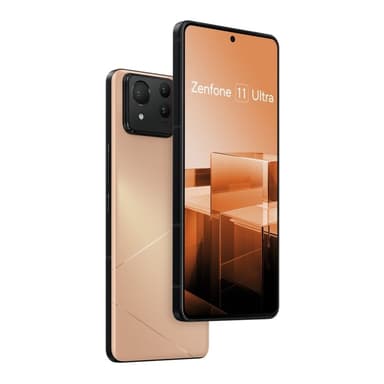- Departments
- Phones
- Xiaomi Redmi K80 Pro vs Asus Zenfone 11 Ultra
Xiaomi Redmi K80 ProvsAsus Zenfone 11 Ultra
We compare these two popular phones to help you decide which one fits your needs and budget better.

Quick Stats

Quick Stats
Note: Highlighted specifications show differences between the two devices.
| Metric | Xiaomi Redmi K80 Pro | Asus Zenfone 11 Ultra |
|---|---|---|
| Connectivity | #511 | #451 Winner |
| Design | #103 Winner | #116 |
| Display | #83 Winner | #505 |
| Performance | #9 Winner | #111 |
| Battery | #126 Winner | #163 |
| Camera | #88 Winner | #181 |
Note: Lower rank number indicates a better position in category.
Xiaomi Redmi K80 Pro
Strengths
Weaknesses
Asus Zenfone 11 Ultra
Strengths
Weaknesses
No specific cons listed for this device
Processor Speed
RAM
Storage
Weight
Xiaomi Redmi K80 Pro
The Xiaomi Redmi K80 Pro is a flagship phone that will be released globally as the Poco F7 Pro. It features a fast refresh rate 2K OLED display, a flagship processor, an ultrasonic fingerprint sensor, IP69 dust and water resistance, fast wireless charging, and more. The phone's design is similar to Xiaomi's Civi series, with a two-tone finish on the back and a flat top. The camera module has a textured design reminiscent of a classic watch, and the IR blaster is now integrated into the camera module. The phone also features a 6.67-inch OLED display with a 2K resolution, using M9 luminescent material for improved brightness. The Redmi K80 Pro is powered by the Snapdragon 8 Elite chipset, which provides fast performance for gaming and other tasks. The phone also comes with a large 6,000mAh battery, supporting 120W wired charging and 50W wireless charging. Additionally, it has an IP69 and IP68 waterproof rating. In terms of camera performance, the Redmi K80 Pro shows noticeable improvements compared to its predecessor, but may not be at flagship level. The phone runs on HyperOS 2.0, which offers smoother animations and a more complete control center experience. The Redmi K80 Pro starts at 3699 Chinese yuan in China (approximately $400 USD), making it an affordable option for those looking for high-performance features without breaking the bank. Overall, the Redmi K80 Pro is a solid choice for those seeking a flagship-level phone at a mid-range price, despite some minor compromises on camera performance and design.
Asus Zenfone 11 Ultra
The Asus Zenfone 11 Ultra marks a significant departure from its compact predecessors, embracing a larger form factor that rivals gaming-oriented Rog phones. This shift in strategy raises questions about the future of the Zen phone lineup. Despite this change, the Zenfone 11 Ultra still boasts many hallmarks of a flagship device, including a high-end chipset, improved camera capabilities, and exceptional battery life. In this review, we'll delve into whether this bold new direction is a worthy successor to the Zen phones that came before.
Need help choosing?
Read our detailed reviews to understand which device is better for your specific needs and budget.
Compare other phones
Explore comparisons between any other phones
Choose two different items to see a detailed comparison of their specifications, performance, and features